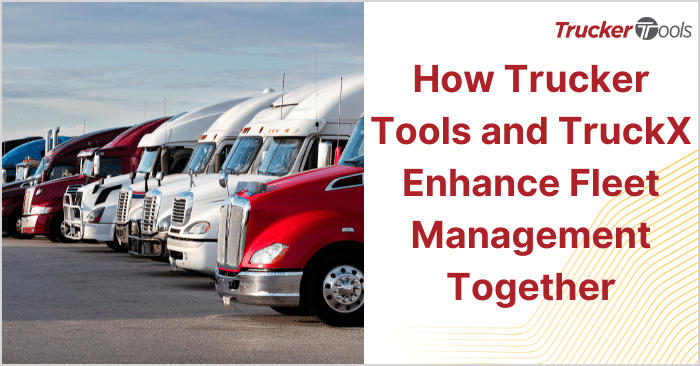Freight brokers play a key role in the transportation industry, acting as the intermediary between shippers who need to move their freight and commercial carriers with the capacity to move these shipments. Freight brokers charge shippers a fee for their services provided, which is how they generate revenue and earn a living. When it comes to how to be a freight broker, your success is built on getting the proper training, obtaining the necessary credentials and choosing the right technology to use in your freight brokerage. Once established, you can earn a great salary with the potential to increase your earnings as you build your industry knowledge. As a freight broker, you also often have the flexibility to work from home and your skill set is always in high demand.
How To Start a Freight Brokerage
Becoming a freight broker and starting a freight brokerage is fairly simple, even for those who are new to the transportation industry. There are several ways to approach starting a freight brokerage, but there are some fundamental building blocks that you need to get started on your journey.
1. Get Proper Training
When planning how to be a freight broker, a great place to start is with building your knowledge of the industry. Though freight broker training isn’t legally required to become a freight broker or start a freight brokerage, it is highly recommended even if you already have experience in the transportation industry. There are multiple ways that you can get that training. Many established brokers will provide on the job training and many offer sign-on bonuses, particularly given recent staffing challenges. Many freight broker owners got their starts working for someone else, learning the ins and outs of the business before starting their own brokerages. If you’re not interested in working for someone else and are ready to start your own brokerage, consider enrolling in a freight broker training school. Both on-line and in-person freight broker training classes are available. They’ll provide you with valuable knowledge about best practices, industry trends and all the basics of how to be a freight broker.

2. Licensing
The second step in how to be a freight broker is to get the proper credentials. In order to start and operate a freight broker business, you must meet specific regulatory and legal requirements. One of the first steps you’ll take in becoming a freight broker is applying for a USDOT number with the Department of Transportation in your home state. From there, you’ll need to apply for your freight broker authority through the Federal Motor Carrier Safety Administration, a division of the U.S. Department of Transportation. You can apply for your broker authority using the FMCSA’s online Unified Registration System. Keep in mind that there is an application fee (currently $300) and that it may take up to six weeks for your application to be processed. Once your application is approved, you’ll receive your motor carrier number (broker authority) from the FMCSA in the mail.
3. Register Business
Once you’ve gotten the ball rolling with the FMCSA, you’ll need to choose a name for your new freight brokerage business and register it with your state. Many freight brokers choose to form their businesses as limited liability corporations, also known as LLCs. Most small businesses in the United States choose LLC for a business structure because it offers the limited liability of a corporation without the tax liabilities of a corporation. Choosing an LLC structure for your business will diminish your personal liability for the business and is relatively easy to set up.
4. Surety Bond and Insurance
After you receive your MC number from the FMCSA, you’ll need to apply for a Surety Bond (Form BMC-84) or Trust Fund Agreement (Form BMC-85) in the amount of $75,000. This means that you’ll need to contract with a bond company that will cover your annual bond for an annual premium. The surety bond is a type of insurance designed to protect the carriers you contract with in the event that you’re unable to pay them for the services they’ve provided. What you’ll pay for a surety bond depends on your personal credit score and business finances. Once you’ve contracted with a bond company, the bond company will provide you with a BMC-84 or BMC-85 form that you’ll need to submit to the FMCSA.
5. Find Shippers and Carriers
The final step in how to be a freight broker is to find shippers who need their products moved by commercial truck. At the very beginning of your freight broker journey, you may have to start with cold calls, networking events and shipper directories such as MacRAE’s Blue Book. After you’ve been in business for a bit, you can cultivate new business through referrals from your customers, warm calls and other avenues. Of course, you also need motor carriers to transport your shippers’ freight. One of the most efficient ways to find carriers is to use a digital freight matching software platform that connects you in real-time with carriers who are searching for freight. With a digital freight matching platform, you can find carrier capacity for a single load quickly and then use the platform’s tools to cultivate a long-term relationship with that carrier.
For a deeper dive into building your customer base, read “10 Tips for Brokers for Finding Shippers.”






